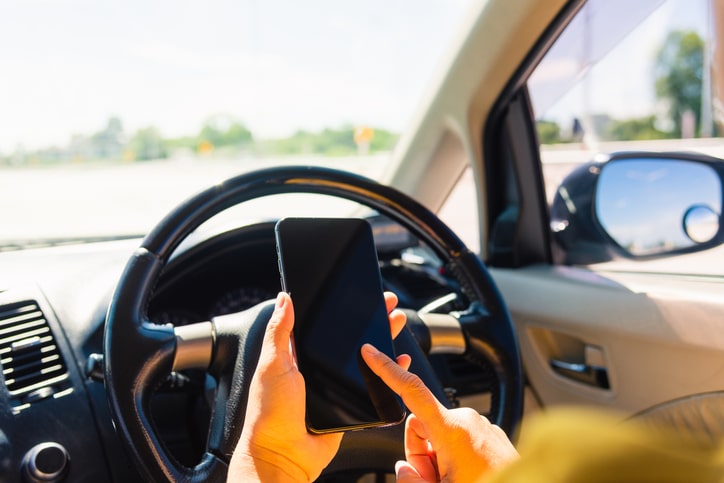Get Our Insider to Property Damage Brochure

How Can I Pursue a North Carolina Uber Driver Who Was at Fault for My Crash?
October 7, 2024Accidents involving Uber drivers can create unique legal challenges, whether you’re a passenger inside the Uber vehicle, a third-party driver, a pedestrian, or on a bicycle when the crash occurs.
If you’ve been injured in a collision caused by a negligent Uber driver in North Carolina, it’s essential to understand how to pursue a claim based on your specific role in the accident. Here, our personal injury lawyers in Charlotte at Dewey, Ramsay & Hunt, P.A., break down the key steps and considerations for both Uber passengers and third-party drivers or occupants involved in crashes with Uber drivers.

Report the Uber Accident
If you are a passenger inside an Uber, Report the accident directly to Uber through their app. This ensures that Uber knows about the incident and starts documenting the claim.
If you are a third-party driver/occupant, you do not need to report the crash to Uber directly. Still, you should report the accident to your own insurance company and ensure that the police create an official report of the accident. If you plan to pursue a claim against the Uber driver, their insurance information (either personal or Uber’s) will be essential.
Gather Evidence at the Crash Scene
Gathering evidence is critical regardless of your role in the accident.
If you’re a passenger, document your injuries, the accident scene, and the Uber driver’s contact details. Request a copy of the police report and take note of any other vehicles involved.
If you’re a third-party driver/occupant, gather the Uber driver’s information (including whether they were logged into the Uber app), document vehicle damage, and collect contact information for witnesses.
Understand Uber’s Insurance Coverage
One of the most complicated aspects of Uber accidents is determining which insurance policy applies, as it depends on the Uber driver’s status at the time of the crash. Uber has different insurance coverage scenarios based on whether the driver had passengers or was actively accepting rides.
If you were a third-party driver/vehicle occupant:
- If the Uber driver was not logged into the Uber app, you must file a claim against the driver’s auto insurance.
- If the Uber driver was logged into the app without passengers, Uber’s insurance policy offers up to $50,000 per person for injuries, $100,000 total per accident, and $25,000 for property damage.
- If Uber drivers were transporting passengers, Uber would provide up to $1 million in liability coverage, which could cover injuries and property damage to third-party drivers or pedestrians. (Can we hyperlink these to Uber website showing these coverage amounts?
If you were a passenger inside the Uber vehicle:
- Uber’s insurance policy provides up to $1 million in liability coverage when the driver carries passengers. This coverage applies to any injuries you sustain while inside the Uber vehicle, regardless of whether the driver or another driver was at fault.
Seek Immediate Medical Attention
Whether you were an Uber passenger or a third-party driver/occupant, your health and safety should come first. Get medical attention immediately, even if your injuries seem minor. A medical evaluation helps ensure your well-being and creates an essential medical record to support any potential personal injury claim.
Consult Our North Carolina Personal Injury Attorneys for Help
If you were injured in an accident caused by a negligent Uber driver in North Carolina, our personal injury attorneys in Charlotte at Dewey, Ramsay & Hunt want to hear your story during a free consultation by calling 704-377-3737 or contacting us online.
We can help you determine which insurance to file against and ensure your rights are protected.
We provide unique legal services tailored to each client’s needs and do not get paid unless you do.
Your Injury, Our Fight. How can we help you take a stand?
Because every case is different, the description of awards and issues previously managed by our law firm does not guarantee a similar outcome in current or future cases.
